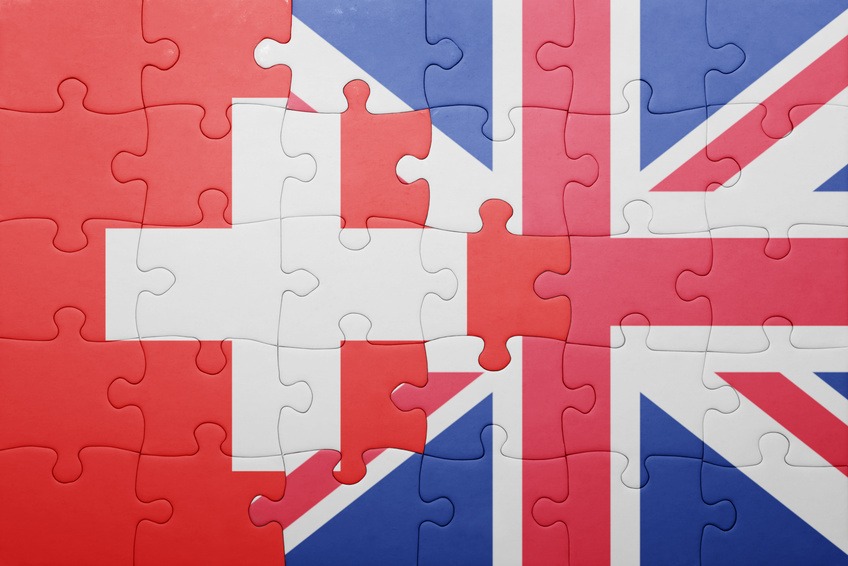
Towards the end of Brexit: The Movie, a pro-leave documentary with over a million views on YouTube, the narrator finds an escape from Europe by travelling right to the heart of it. Arriving in Zurich’s main train station, he looks around at the ‘lovely’ surroundings, the efficiency, the polite people, and imagines a similarly rosy future for post-Brexit UK. The ‘Britzerland’ scenario, some leavers claim, provides a model of what life outside the EU could look like: economic access to Europe without ceding sovereignty to it.

This has largely been met with bemusement here in the Alps. The complex EU-Switzerland legal framework is not only a one-off, but took years of hard negotiations to conclude. It is also full of caveats. According to a recent report by the Swiss think-tank Foraus, the idea that the Swiss have their cake and eat it too is wholly misleading. Bern is often forced to implement EU law in exchange for access to the single market, without having any influence over legislation. It has also made ‘solidarity contributions’ of about 1 billion CHF to the EU over the past decade - hardly a free ride.
Rather, the most pressing issue right now is not what the Swiss model can offer the Brexit debate, but what Brexit would mean for the fate of the Swiss model itself. Back in February 2014, a referendum in Switzerland was successful in demanding quotas be placed on the number of foreigners entering the country. Since then, Bern has been at odds with the EU, trying unsuccessfully to hammer out a deal which would restrict immigration, while respecting the freedom of movement underpinning its membership of Schengen. A British decision to leave would compound these problems and make the negotiations even more politically acute.
The first reason for this seems to be one of timing. Attention is a limited resource, even within the bureaucracy in Brussels. The amount of energy the EU can devote to discussions with the Swiss has already been curtailed by larger worries about a British exit. Should a Brexit happen, the masses of administrative details involved in a UK secession would distract it even further. If this distraction stretches beyond February 2017, the deadline for implementing the quotas, the Swiss government would be forced to act, further damaging the progress of negotiating a framework agreement with the EU.
The second reason, like much in the Brexit affair, is one of narratives and perception. A British vote to leave would be arguably the single biggest blow the EU project has ever taken. It would add substance to the rhetoric proclaiming the end of an ‘ever closer union’, leaving Brussels and the core European members shaken but determined to stem the flow. In the game of precedence-setting, it would not only make renegotiation extremely difficult for London, but it would also likely cause a game of hardball with Bern: any perceived ‘concessions’ could be seized upon by other Eurosceptic member states with opportunistic tendencies.
All of this has made for some sweaty alpine palms. The EU has already ‘retaliated’ since the 2014 vote by suspending Swiss participation in the Erasmus Plus student exchange programme, as well as cutting off some access to research and innovation funding under the Horizon 2020 programme. As the Swiss economy continues through a period of deflation and exports suffer due to an overly-strong franc, further complications with Brussels are not welcome right now. The EU is naturally the biggest trading partner of Switzerland, whose economy also depends on large numbers of skilled migrant workers. Voters and politicians alike are starting to second-guess the 2014 decision: a recent poll by Gfs.Bern, a research agency, found that the number of citizens who would in retrospect vote for the restrictive quotas has dropped to 37 percent.
Not everybody is so downbeat. One recent opinion piece in the French-speaking daily Le Temps suggested that the institutional mess which would follow a Brexit could be seized upon by Swiss negotiators to secure a better deal. The EU would be on the back foot, according to this logic, and more likely to want to maintain good ties with its third-largest trading partner, rather than rock the boat further. But this is more opportunistic than realistic: the EU holds the trump card of single market access. Even in disarray, it is the senior partner.
Ultimately, estimating the cost to Switzerland of a leave vote runs into the same problems as efforts to explain the vote to citizens in the UK. Current economic statistics and sentiments can only go so far in predicting what the reshaped reality would look like. But like the mountains which symbolize the state, the real foundations of the Swiss model are here to stay: social solidarity, efficient local governance, and progressive taxation are oblivious to administrative agreements with Europe. As Brexiteers search for a path for the future, perhaps this is a lesson they could draw upon.
Image credit:luzitanija via Fotolia
A nice change to see an article from the Swiss perspective. Well written and informative. One point though, 1 Billion over 10 years is hardly a huge expenditure. The Swiss spend more on digging tunnels to connect to other countries, maybe bridges are another story..